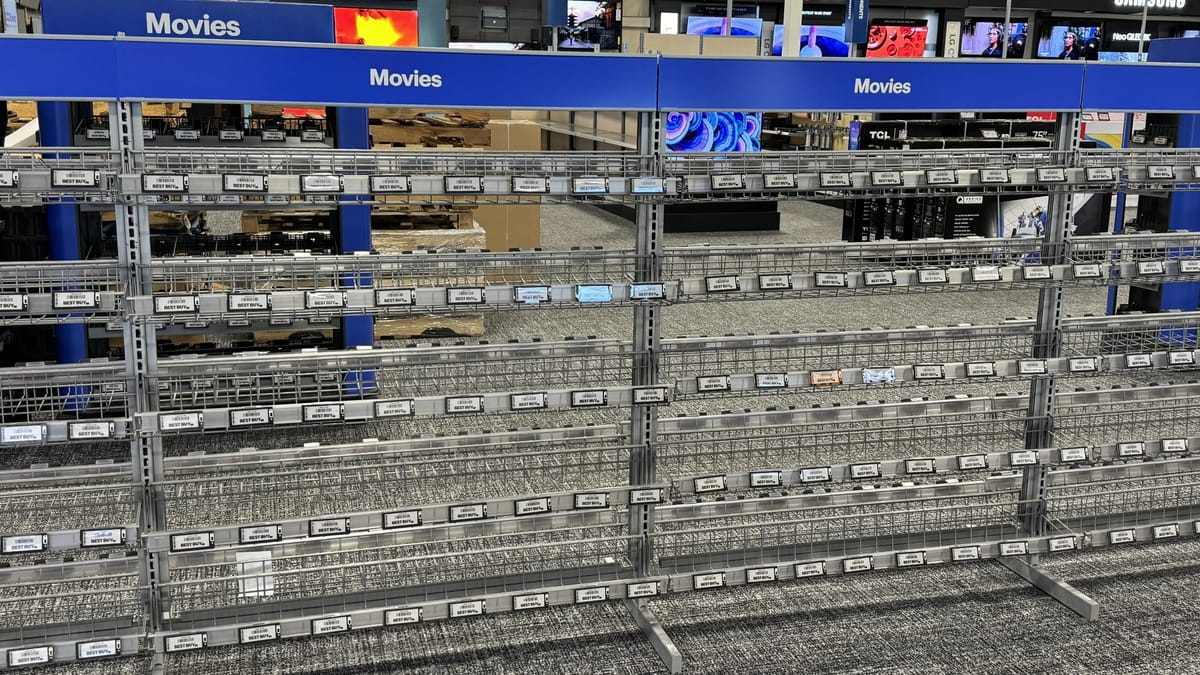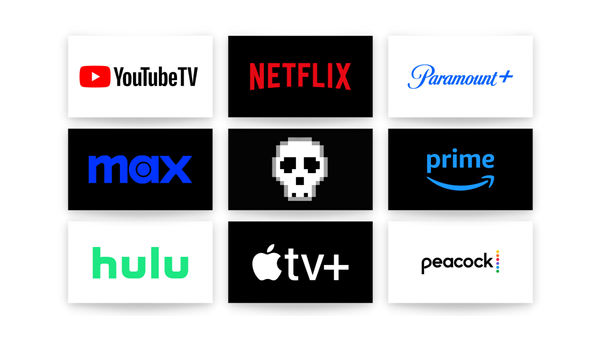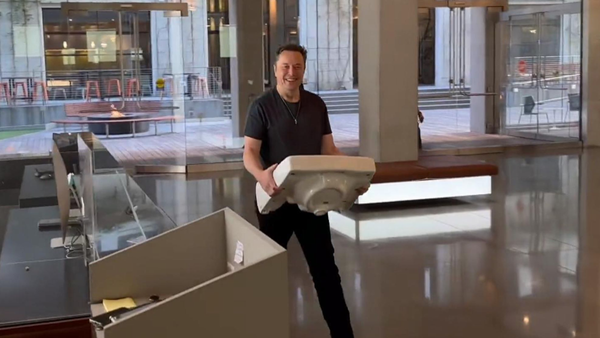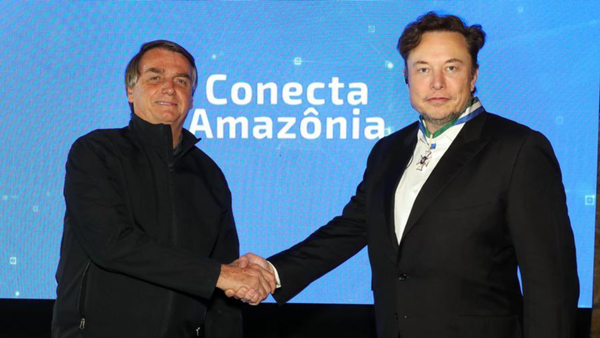Why is it so hard to buy a Blu-ray?
Retailers are dropping physical media as streaming dominates, and that’s a real problem

A few weeks ago I was hyping myself up about Dune: Part Two and decided to rewatch the first one. I considered just checking to see which streaming service it was on, but I wanted the best at-home viewing experience to get the most out of the film’s incredible visual aesthetic, so I went looking for the 4K Blu-ray. I was shocked at how hard it was to find.
I started with Best Buy. I worked there about fifteen years ago and remember the aisles that used to be dedicated to DVDs, Blu-rays, and CDs in the center of the store. When I logged onto their website and searched for “dune” though, I got nothing. Not even the regular Blu-ray. That’s because Best Buy has given up on physical media. If you go into one of their stores today, you might find a few shelves hidden in a corner with a few new releases, but that’s about it. And if you find some listed on their website, they’re likely from a marketplace seller, not Best Buy itself.
I checked again as I was writing this, and after the success of Dune: Part Two there are now a couple marketplace sellers listing a vastly overpriced Dune steelbook or the 3D Blu-ray, for the tens of people still sticking 3D glasses on their faces at home.
Next I turned to the big box empire: Walmart. I rarely visit Walmart stores, but I felt I’d seen some physical media there during the early Covid years. The stats say they account for 45% of the market share for physical media sales in the United States, so I figured they’d come through for me. But once again, I got nothing. Today it has a 3D Blu-ray and some boxed sets that contain it from marketplace sellers, but no regular Blu-ray and certainly not one in 4K.
I also checked the website of a local store in Montreal, but they didn’t have it in stock (they now show a couple copies), so finally I had to turn to my last resort: Amazon. And even then I was disappointed. The regular Dune Blu-ray was available, but would take weeks to arrive — it’s currently showing a delivery estimate of mid-April — while the 4K version was only available from a marketplace seller, and would once again take a couple weeks to reach me. That meant I wouldn’t get it until after the release of Dune: Part Two.
Even Amazon — the monopolist ecommerce company that’s supposed to have everything and be able to deliver it all in days — couldn’t get me a simple Blu-ray disc in a reasonable time. What has the world come to?
To be totally clear, I’m in Canada, so that could be part of the problem given we’re a smaller market. Maybe Americans will chime in and tell me physical media is still easily available down there, but from what I’ve gleaned from Reddit, I suspect that’s not the case. This isn’t even the first time it’s happened to me. When I tried to buy The Lord of the Rings trilogy in regular Blu-ray and 4K (don’t judge me) in the past year, Best Buy and Walmart didn’t list either of them, and Amazon couldn’t get the extended edition Blu-ray set to me for weeks after I ordered it.
I know this just sounds like me complaining that I can’t buy some movies. Oh no, Paris can’t watch Gandalf say “you shall not pass” on disc. Just stream it like everyone else!, you might be thinking. But I think it’s about far more than that, and I presume you might too if you made it this far.
How streaming crushed physical media
Over the past ten years, companies like Netflix made us a promise they’re very clearly reneging on. They told us that subscription services would give us easy access to vast libraries of film and television that could be easily streamed over the internet from anywhere. We’d eventually be able to get virtually anything we could care to watch by paying a reasonable monthly fee, and we’d never have to worry about ads like on cable or broadcast television. For a while, Netflix even promoted the idea of sharing your password with friends and family. But those days are long gone.

Now streaming services seem to be in a race to see who can hike their prices fastest, even as they try to get more subscribers watching ads and crack down on anyone still using their parents’ Netflix account or sharing their Disney+ with a friend. Gone are the days when “love is sharing a password.” Everyone must pay or risk getting cut off. And what are they getting cut off from? Libraries that keep getting smaller as entertainment companies shelve movies and series to get tax write offs or avoid paying residuals and licensing fees. It started with Warner Bros. Discovery’s Max (formerly HBO Max), but then spread to Disney+, Hulu, and Paramount+. I wouldn’t be surprised if even more follow suit.
At the same time as streaming companies show exactly why physical media is so important, it’s precisely the success of streaming that’s causing physical media to become so hard to find. In 2005, DVD sales peaked at $16.3 billion in the United States, while Blu-ray sales hit their peak in 2013 at $2.37 billion. Last year, both formats sold $1.5 billion combined — a drop of 25% from the previous year and a much bigger one from their peak. That will only be made worse as they become more difficult to track down.
Best Buy isn’t the only one pulling back on physical media. Netflix shuttered its DVD-by-mail business last September around the same time as Ingram Entertainment, once the largest US distributor of home media, exited the disc business. Disney announced an abrupt end to its DVD and Blu-ray business in Australia last August and is winding down its Disney Movie Club service in the United States. It’s now outsourcing its physical media business in the United States and Canada to Sony, the company that spearheaded the Blu-ray format, and it’s unclear what that will mean for the future availability of its movies and TV shows on physical discs.
Streaming companies — and, really, tech companies more broadly — have shown us they can’t be trusted. They’ll rip our culture out of our hands if it will please their shareholders because at the end of the day all that really matters is the quarterly earnings and the share price. You can’t depend on streaming libraries, and buying digital versions aren’t a solution either because you don’t even own them. Technically, when you buy a digital product, you’re usually just buying a license that can later be revoked if the company doesn’t want to keep providing the service.

In recent years, even as services like Spotify and Apple Music have dominated the music market, there’s been a resurgence in vinyl sales as people have seen the benefit of having a physical product: not just because you actually own it and can display it, but because it sounds better too. (It’s not just vinyl either; even CD sales are up.) I wouldn’t be surprised if we start seeing something similar with video.
There are already suggestions that 4K Blu-rays are filling a similar niche as vinyl for home video, with the backing of prominent directors. Asteroid City director Wes Anderson told The Wrap, “A good Blu-ray is sharp as a tack — and consistent. It always plays exactly right. It does not disappear from a cloud or platform.” Last year, Christopher Nolan put special attention into the Blu-ray release of Oppenheimer and encouraged people who liked the movie to buy it “so no evil streaming service can come steal it from you.”
The physical disc doesn’t just mean it can never be removed from your digital library, but they also tend to come with bonuses like behind-the-scenes footage and it’s the best way to watch the movie: the visuals and audio will be higher quality than a more compressed version that’s streamed or downloaded. With the flaws in the streaming model becoming increasingly apparent, is physical media in for a resurgence?
I’m going back to physical media
About ten years ago, I got rid of all my physical media. I was going to be a nomad and felt it would just weigh me down. As I discussed previously, at the time I believed that streaming was the future and I was ready to embrace it as a better alternative than what we already had. I eagerly subscribed to Spotify when it launched in Canada, letting my iTunes library whither (much of which was bought, not pirated), and slowly shifted from pirating movies and shows to subscription streaming services as they became more common. I even started reading ebooks almost exclusively, between the iBooks app on my phone and later a Kobo ereader.

These days I regret having gotten rid of those DVDs, Blu-rays, and CDs, seeing the world streaming companies have created. A few years ago, I went back to reading physical books and only occasionally pick up my ereader, and I love the small (but growing) library I’ve been building. I don’t know how I ever read so many books on my phone. I’m now at the point where I’m considering paring back my streaming subscriptions too, in part because of the price hikes and ad tiers, but also because the experience has slowly become a bigger problem for me.
I’m fed up with opening up a streaming homepage and looking around for something to watch only to find that while I might have a large library of content available to me, little of it is actually worth my time. I remember before I got Spotify I would make a point of listening to new music and finding new artists I might like, but then I gave myself over to the algorithm and now I feel like I’m stuck listening to the same tracks over and over. It’s not too different with streaming video. I want to be more intentional about what I watch and listen to, and many streaming services actively discourage that. They want you to accept the rule of the algorithm, and I no longer think that’s good for us or our culture.
After a long hiatus, I’ve started buying Blu-rays again if there’s a movie I really like. I don’t have many so far, but I’m looking forward to slowly building a little video library of my own. I’m debating whether to keep some streaming services or just to be one of those people who occasionally subscribes for a month here and there to catch up things, but otherwise just does digital rentals and picks up the Blu-ray when there’s something I really like. I feel that might be a better move, while holding out hope for some broader structural shifts that recognize culture isn't just an entertainment product, but a public good that needs to be properly protected and supported so it can thrive and, at the same time, enrich our lives.
As for Dune, I ended up buying (a license to) the digital version from Apple because it was on sale for the same amount as a rental. My 4K Blu-ray showed up after Dune: Part Two came out, and I plan to preorder a physical version of that one — maybe even the steelbook — when the time comes. I know it’s one I’ll want to rewatch.






